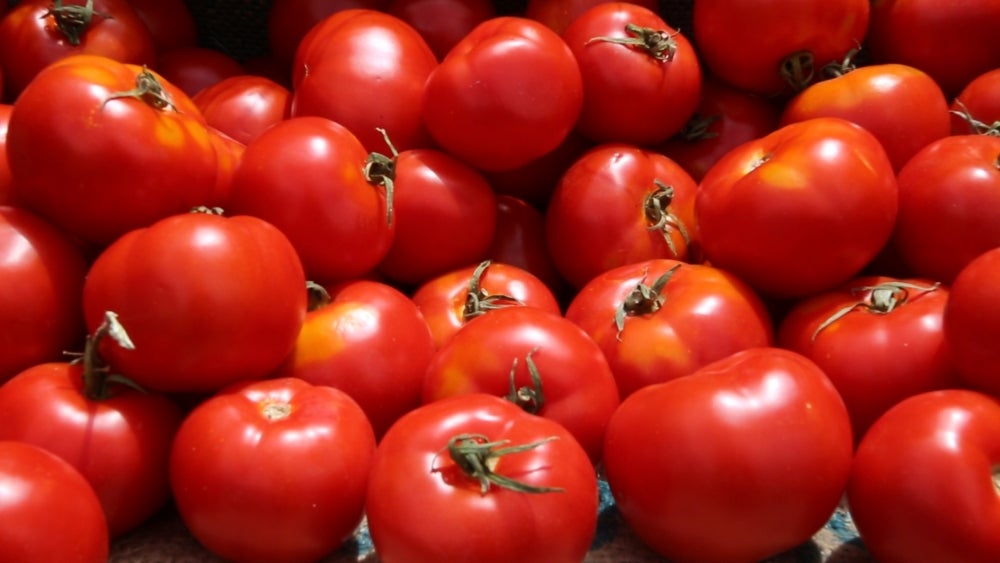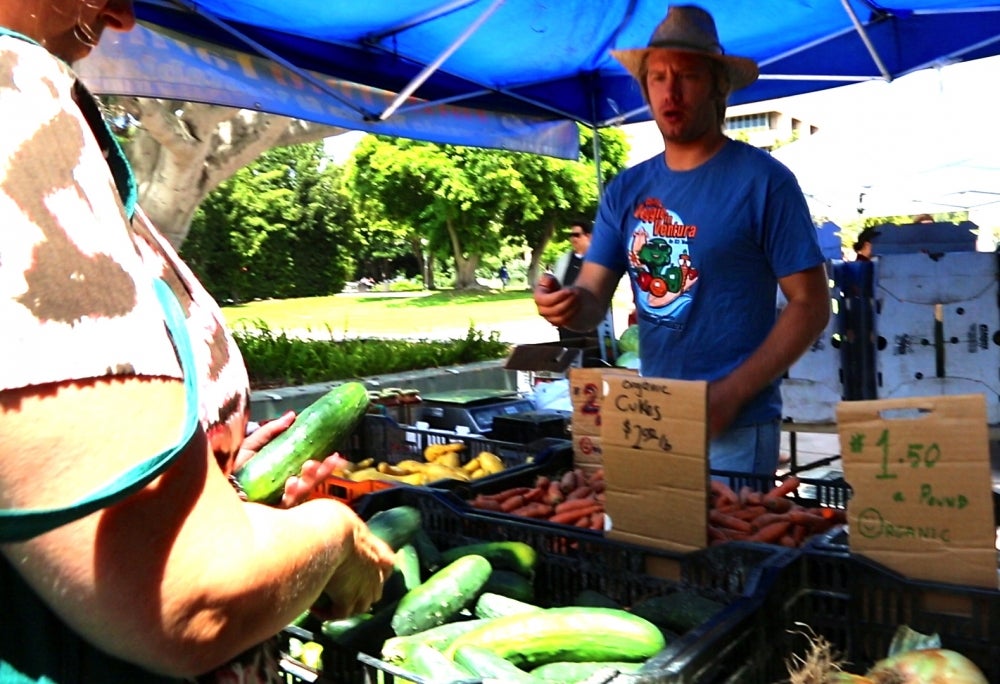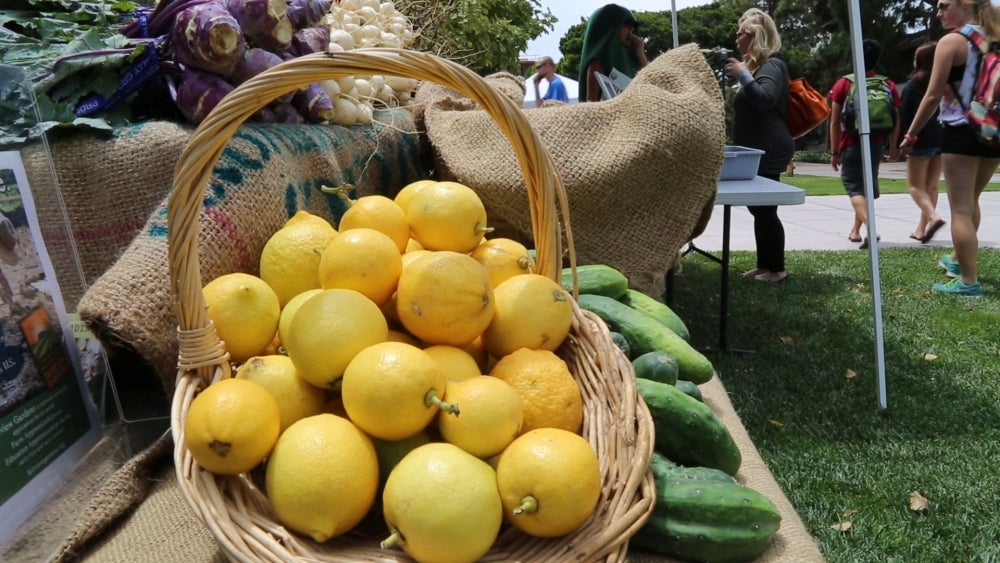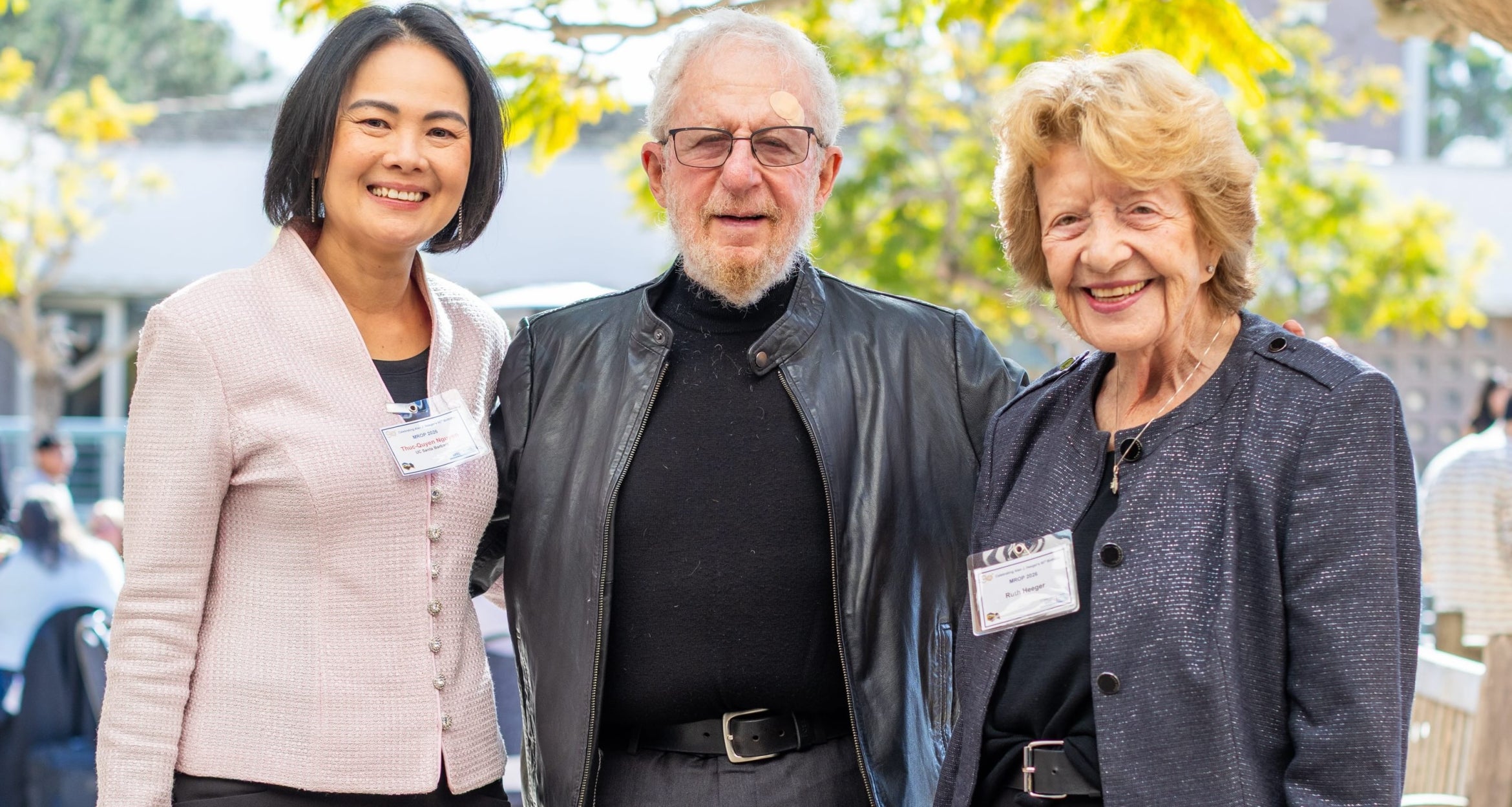Food for Thought
Can altering our diets impact the global food system and, ultimately, change the world?
It is possible and, on the individual level, relatively simple, according to David Cleveland, an environmental studies professor at UC Santa Barbara. Even minor dietary tweaks, he argued, could improve personal health and, over time, benefit the earth.
“Our food system is very productive, but it also has contributed to some major problems, such as disease and global warming,” Cleveland said during a food forum held Thursday at UCSB. “Diet has incredible potential to be part of the solution. Simply changing our diets could, for instance, lead to a significant reduction in healthcare costs and reduce demand for energy.”
Cleveland was one of four featured speakers at the event held in conjunction with UCSB’s weeklong observation of national Food Day. The latter event is an annual nationwide celebration — and year-round movement — advocating for healthier, more affordable and more sustainable food.
Campuses across the UC system have marked Food Day as an extension of the university’s own Global Food Initiative, an effort to develop, demonstrate and export solutions — throughout California, the U.S. and the world — for food security, health and sustainability.
The panel at UCSB capped off a menu of campus events that also included a vegan potluck picnic for “Meatless Monday,” the weekly Gaucho Farmer’s Market and an informational session with staffers from the Greenhouse and Garden Project (GHCP).
Speaking during the culminating forum, Kristen LaBonte, staff advisor for GHCP, pitched the engagement effort — membership is open to students, staff, faculty and local residents — as a means of teaching sustainability in the greatest sense of the word.
“It’s really important to have this on campus,” LaBonte said. “It’s organic, it’s healthy and for many people it’s even spiritual. And it gives students a recreational outlet — getting them out working in the garden — while showing them that they can grow their own food. When they move on, they can take those skills with them forever.”
Imparting such “forever” skills is also a priority for the Associated Students Food Bank, a three-year-old, student-founded pantry that has served 3,500 students since 2011. Its slogan, “Fighting hunger. Feeding lives,” is a direct reflection of its philosophy, said coordinator Tuyen Nguyen.
“We are striving to be a transformational, rather than just a transactional, service,” Nguyen told panel attendees. “We want to help our students build the foundation for a sustainable life, and a big part of that is having the resources and the knowledge to move out of hunger. We are seeing an increasing need among our students, but for us as a service, we can only truly be successful if we are decreasing that number.”
Decreasing the numbers of hungry students will rely heavily on food justice — a term used in the growing push for equal access to the healthier and organic food that is too frequently out of reach for those struggling to make ends meet.
In his remarks at the Food Day forum, Nelson Lichtenstein, who holds the MacArthur Foundation Chair in History at UCSB, advocated for improving wages and conditions across the grocery industry as one way toward food justice. Giving employees better job security and a stronger voice, he argued, could trickle down to effect change in food companies that are largely exclusionary to the less fortunate.
Said Lichtenstein: “If we had food justice, we wouldn’t need food banks anymore.”
About the Global Food Initiative
The University of California Global Food Initiative aims to put the world on a path to sustainably and nutritiously feed itself. By building on existing efforts and creating new collaborations among UC’s 10 campuses, affiliated national laboratories and the Division of Agriculture and Natural Resources, the initiative will develop and export solutions for food security, health and sustainability throughout California, the United States and the world.






